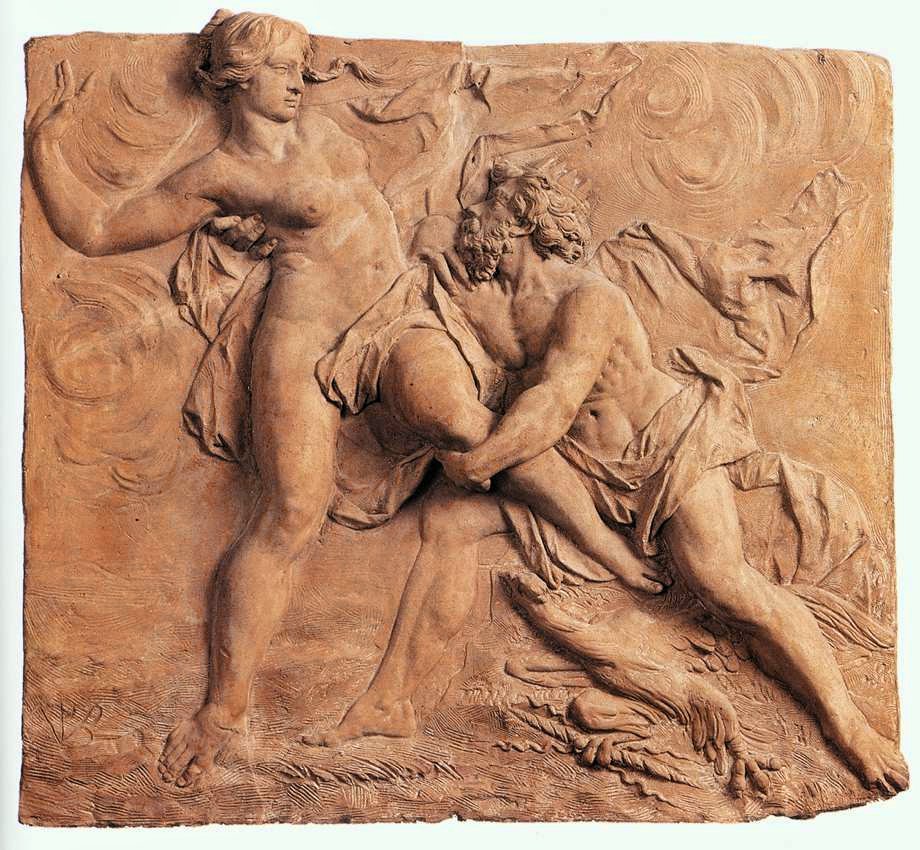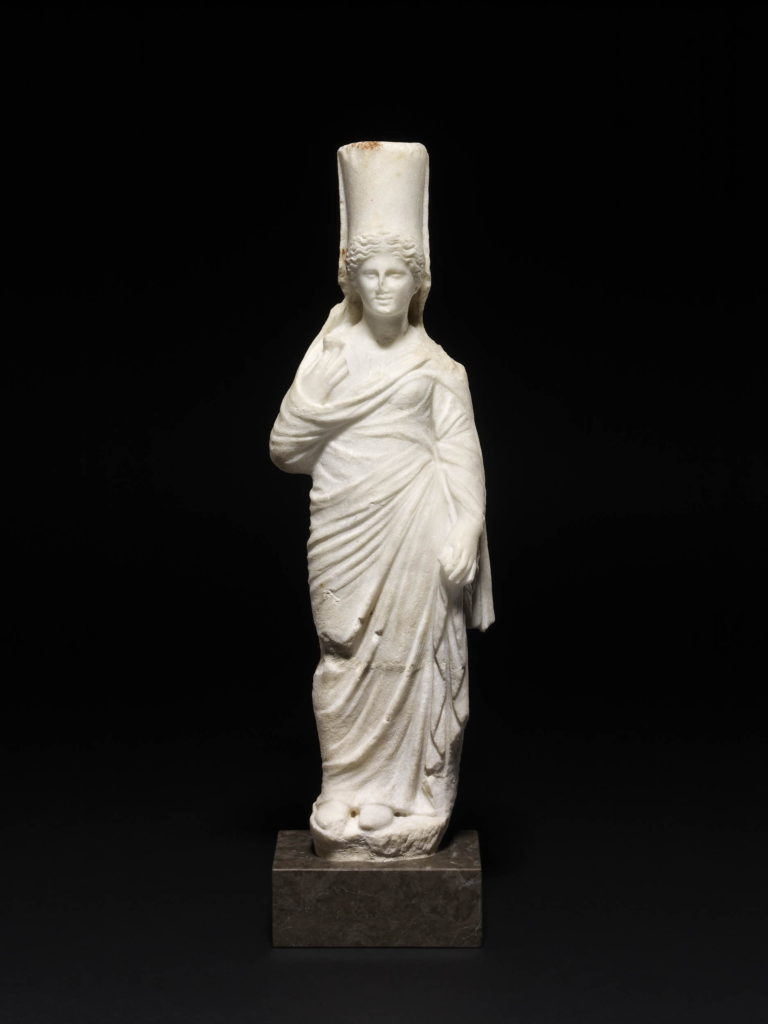In Greek mythology, the goddess of spring is Persephone. The Greeks imagined her as the green miracle of rebirth, the effervescence of all melting streams, the archetypal Maiden. Daughter of Demeter and Zeus, Persephone blushes the land with warmth after winter.
Hades, however, lord of the sunless underworld, wants her for himself. Hades slinks up to Olympus to locker-room-talk it over with his brother, King Zeus, who has the unholy gall and/or stupidity and/or brain damage and/or evil to suggest that Hades should abduct Persephone when Demeter is distracted, because Demeter — herself the goddess of harvest and the fruitful earth — probably won’t understand. So Hades bides his time in the shadow-realms until Demeter steps away. Then he bursts out with a wind of corruption, his chariot opening a gash in the ground and his beady eyes squinting in the sun. He grabs Persephone and drags her back down to, as they say, make her his bride. No proposal, no planning, no celebration. This “marriage” is nothing but rape.

Nothing grows. Crops shrivel. Harvests fail. People starve, stop sacrificing to the gods. This threat to Zeus’s base finally gets his attention, and he implores Demeter to calm down already. Teeth set, she declines, demanding the return of Persephone, as in yesterday. Ok, ok, says Zeus, just stop whatever this is that you’re doing. Zeus barks at Hades to release Persephone. Hades says he will, but first he gives Persephone a ruby-red pomegranate seed. That tiny shock of sweetness and tart explodes on her tongue as Hades springs his trap: she now has to spend half of the year with him underground, when the earth will feel the bite of winter.
Older men deciding the sexual fate of young women. Male oblivion to a mother’s love, to the need of all women for respect and autonomy. Indifference to the pain of victims. These themes sound so familiar because they are. They play out every day, in movies, tv, the internet, the news. Hades hovers over every act of sexual predation, from lewd comments to copping a feel to rape. Sexuality expressed as an exertion of power represents an irruption of the forces of death, an ending of innocence, a stifling of potential, and someone’s personal induction into a psychological shadow-world between life and death.

As a metaphor for sexual initiation, this myth stinks. Notice how the story demands perfection from Persephone while indulging others’ loathsome behavior. Zeus can plan his own daughter’s kidnapping and rape, and Hades can carry out those crimes on his niece, but if Persephone so much as eats a pomegranate seed–well, see? she took the payoff. Maybe she had too much to drink. What was she wearing that day? Those togas are just asking for it... And here is where young women make their mental notes, consciously or subconsciously: I better be perfect, or I’m going to hell. No! Enough! So what if she ate a pomegranate seed? She hadn’t eaten anything else for days, she was locked up and assaulted by her uncle, she was in pain and barely able to sleep, too tormented by trauma and the shame of her own helplessness and not knowing what new terrors approached. Persephone owes no explanation to anyone, not for the attack and not for the pomegranate.
I know of no mythic tradition other than Greco-Roman that feels the need to portray Spring being kidnapped, raped, and held hostage by Death. Greek myth is one of the deep rivers that feed the roots of western culture. Their stories became enshrined as our stories, as surely as the ideal of democracy became our ideal. They float below the surface, in what we commonly call the subconscious mind, that vast, intricate, continual simmer that handles all your body’s squishes and rhythms, and all the skills you’ve learned so well that you no longer need to think about them: walking, talking, doing the dishes, world views, and beliefs, including all the uglies: misogyny, racism, homophobia. But subconscious patterns can change. The conscious mind can reshape the subconscious.
Patriarchy, as Hades and Zeus exemplify, targets women and children and people of color and the LGBTQ+ community and members of vilified religions in order to keep us afraid and compliant, but in the process it wounds the patriarchs, too. Demeter’s rage hurts the sky god himself. But more directly, power causes brain damage. People in power lose their capacity to empathize, to imagine into the viewpoint of others. They lose the capacity for love. No wonder so many sexual harassers simply have no idea that their “advances” are actually aggression, or that their desire for sex is not shared by their victims. Nor do they register or care about their victims’ fear. They need radical re-training in basic compassion.

Incidentally, creativity thrives in a climate of trust and support, when we feel safe enough to take risks, when we don’t have to use all our energy for survival, when we’re not coerced into roles for which we have no aptitude or desire. The myth mirrors that. When Demeter and Persephone are left alone to do their thing, the world flourishes. When they fall under attack, the earth withers.
In studying Persephone, some mythologists catch echoes of a time when perhaps she ruled the underworld alone, when she reigned over the dark, mysterious realm of the dead. But how could a single goddess oversee death and new growth? Isn’t that a contradiction? Not at all. The Queen of the Underworld governs the dark depths that support all life. She guides the entire cycle. Hades makes death seem a terror, a defeat, a violent seizing, but the deeper truth of Persephone is that life is a miracle, like the coming of spring, and death is always a peaceful return, no matter its outward circumstances. Persephone simply turns the wheel. She pushes up the green shoots after winter, and she blesses the dead when they cross her threshold.